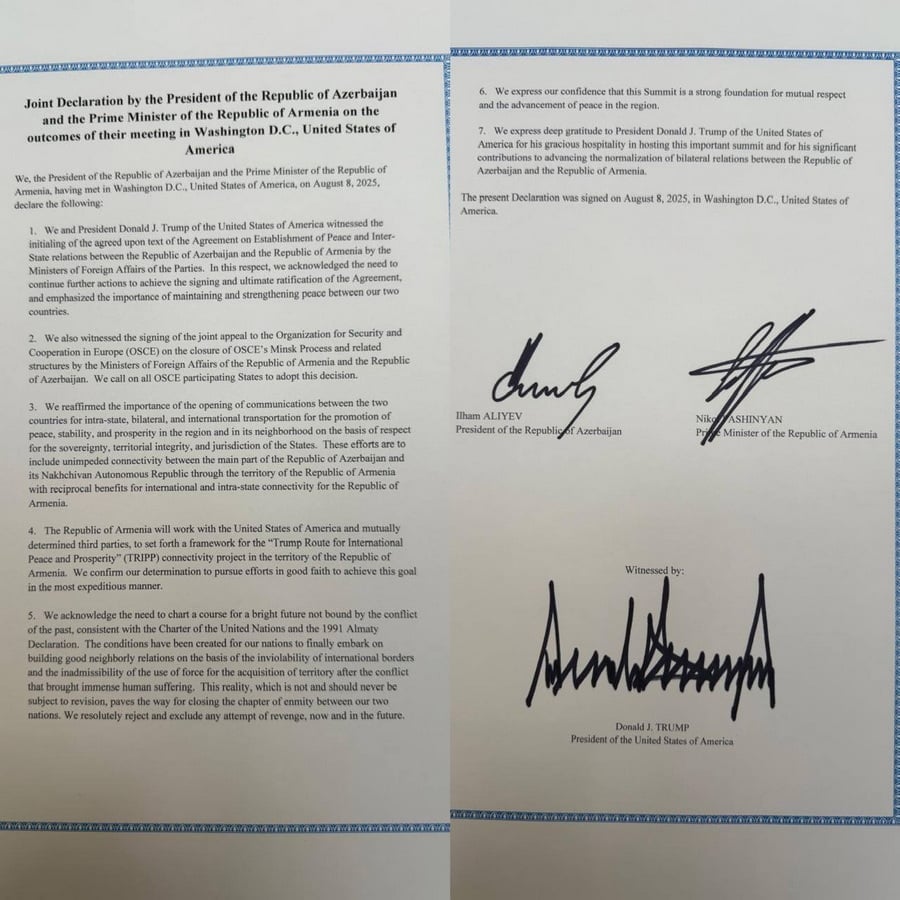In the previous article, I tried to show that Azerbaijan has no desire to establish peace with Armenia, and the current stance of that country’s leadership is proof of this. Otherwise, Alevi would have signed the “peace treaty” in Washington. Since he did not sign it, at least from this it is clear that he still has something to receive from us.
But let’s approach the question from the other side: does the current Prime Minister of Armenia, Nikol Pashinyan, sincerely want peace to be established between our countries? The Prime Minister who shouted “Artsakh is Armenia, and that’s it.” Who started the negotiations “from his own point of view.” Who was elected in 2018 with the slogan of returning Artsakh to the negotiating table. Who was lying in 2019 that there was no document on the negotiating table, but in fact rejected the OSCE Minsk Group’s proposal. Who, after the Tavush battles in July 2020, declared that they proved that the Nagorno-Karabakh issue had no military solution. And so on.
Since the Prime Minister has changed his position 180 degrees several times, not addressing the bankruptcy of his previous policy, then (we can agree with our colleague Tatul Hakobyan) it is not at all excluded that tomorrow or the day after tomorrow he will again become the number one supporter of war. If the ruler is guided not by any ideas or principles, but exclusively by his obsession with staying in power, then, depending on the situation, he will choose the “principle” that is easiest to “sell” at that moment to both influential external players and his own citizens.
If a “peace agreement” were signed in Washington, it would be very bad, terrible, but some kind of a milestone. But now Aliyev’s demand to change the RA constitution hangs over our heads. That will also be sold to citizens as a “test of peace.” Regardless of what will be written in the text of the new constitution (even if Armenia is declared a constitutional monarchy), citizens will be persuaded: “If you want peace, you must vote for it.”
Read also
The “precondition for peace” put forward by another state has entered the domestic political agenda of our country.
Aram ABRAHAMYAN





















































